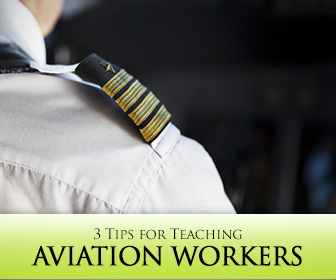“Could You Repeat That Check in Date...Again?”: 6 Strategies for Teaching Listening Skills in Hotel Industry


They also frequently come into contact with the angriest of people due to the high stress nature of travel. If you are teaching English for specific purposes (ESP) to those about to or currently working in the airline/airport industry, be sure to include some tips about dealing with angry and stressed out customers. Here are tips for preparing students to speak English in tense situations.

The words we speak say a lot, but the tone we say them with says even more. Unfortunately, intonation can be one of the most difficult things for learners to pick up on, especially if they come from tonal-based native languages like Chinese.
The best way to overcome this problem is to teach students about common intonation and stress patterns. Show them arrows to model the rise and fall of intonation with example sentences and questions.
Compare and contrast the different intonation patterns of people:
Also explain that in order to emphasize certain words, English speakers put more stress on them. In order to stress them, they often come out louder and with longer vowel sounds. Do some word stress practice with your students so they can practice hearing emphasized information in speech (for example, “I need MY SON to be in an aisle seat” has much different meaning than “I need my son to be in an AISLE seat.”)
Give this (or another generic airline dialogue) to several pairs of students and assign each of them a type of customer—angry & aggressive, overly tired, nervous, happy & relaxed, etc... Focus on having students change just the intonation to portray their scenario correctly. For an added interactive element, have the students present their dialogues in front of the class, but don’t tell the class which kind of customer they have. Have the class guess based on the students’ intonation after they have finished.
Airports are arguably some of the most diverse places around. There are continuously several different cultures interacting simultaneously, and while English may be the dominant lingua franca, there are countless dialects and varieties of English at any given time. People working in the airline industry must be capable of understanding and communicating with a variety of English speakers.
As a teacher, vary your listening samples as much as possible. Find recordings online of people with different English accents speaking and have students practice listening. Don’t forget to use examples with less than perfect English—native and nonnative speakers alike don’t always use proper grammar, so your students need to be on their toes and prepared for such cases.
To handle difficult and high-stress situations, students need to be extra confident with their fluency skills. Try these activities to build fluency.
Working in the air travel business can be stressful, so speaking English shouldn’t have to be. As an ESP teacher, prepare your students to deal with the stressful world of air traffic with confidence!
What are your tips for speaking confidently under pressure?